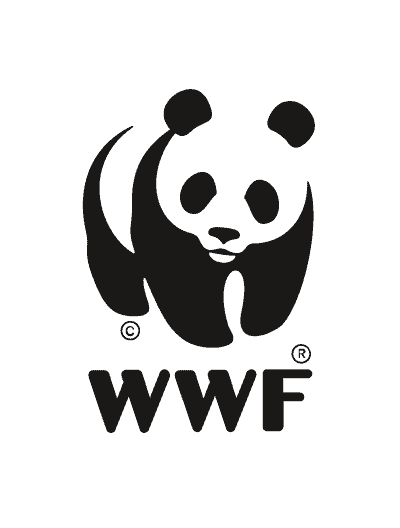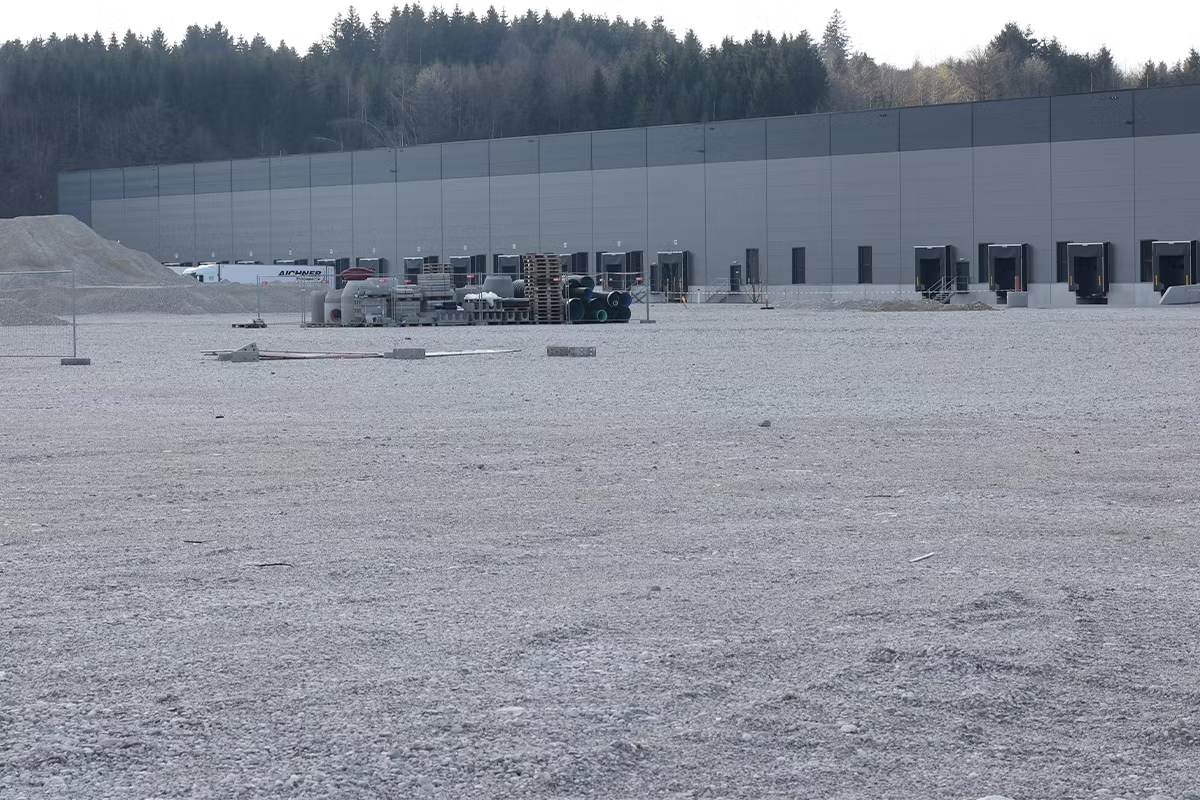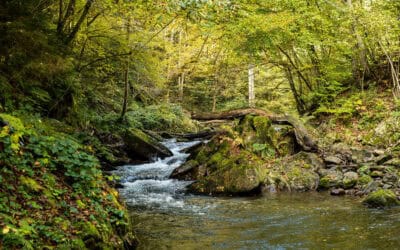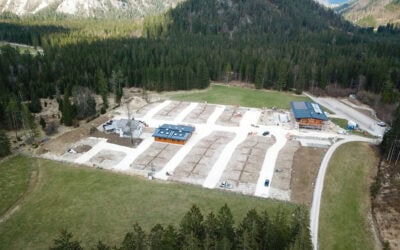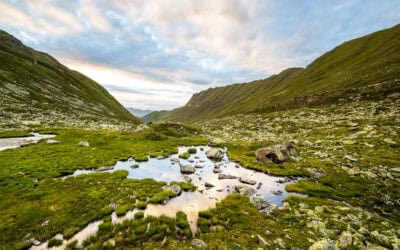In einem Video präsentiert der WWF eine neue Version der Bundeshymne, in der das „viel verbaute Österreich“ besungen wird.
Thousands of new dams threaten EU´s largest river system
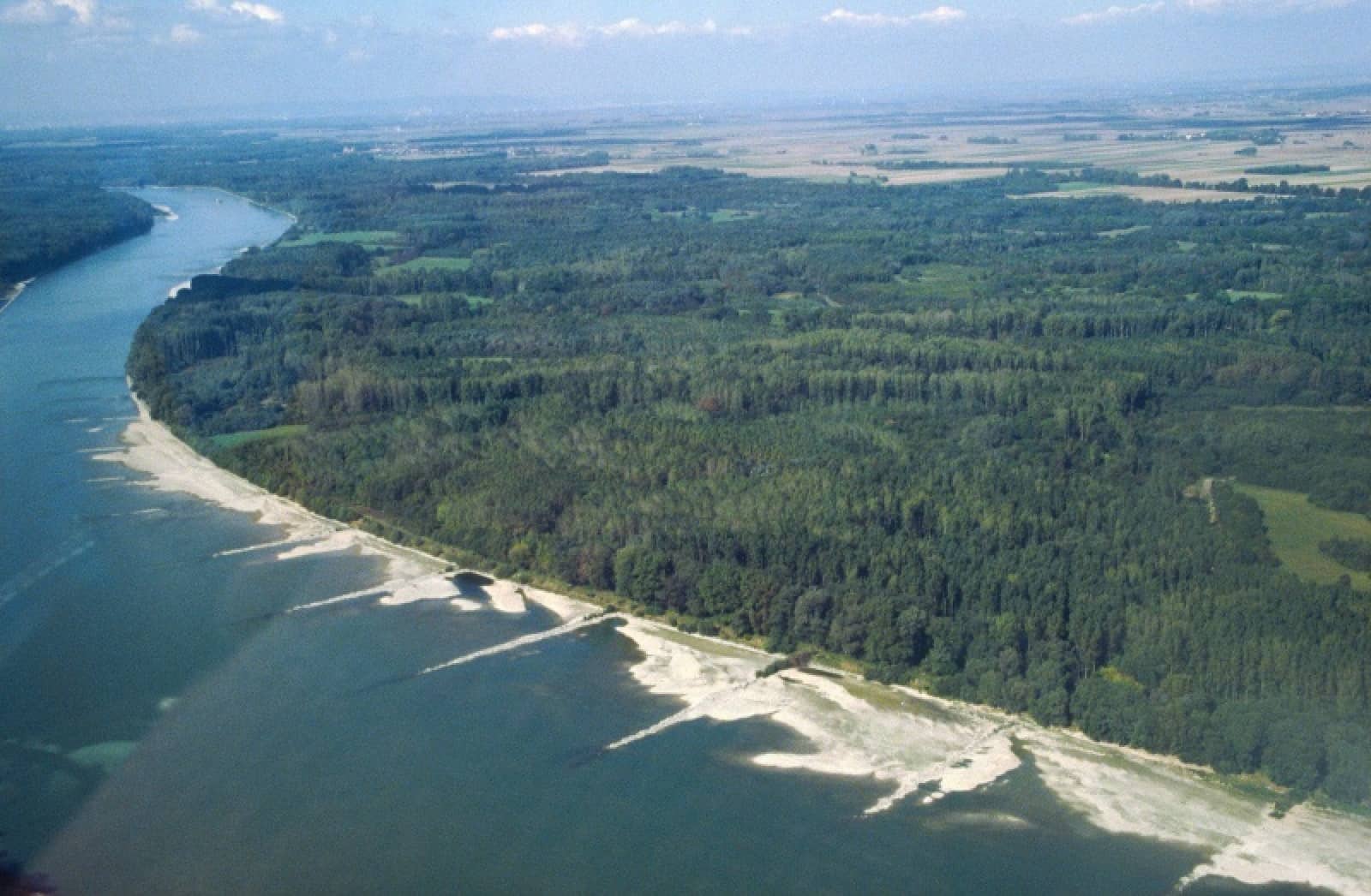
Belgrade, Bucharest, Munich, Sofia, Vienna, Zagreb, June 26th, 2012 – At a high-level meeting of the International Commission for the Protection of the Danube River tomorrow in Innsbruck, Austria, representatives of Danube basin countries discuss for the first time how to prevent new hydropower projects from damaging river ecosystems of the 800.000 km2 large basin. The NGO networks WWF, the International Association for Danube Research (IAD), the European Anglers Alliance (EAA) and the Danube Environmental Forum (DEF) call for basin wide criteria for identifying ecologically important river landscapes too valuable for energy production.
“We call on governmental authorities to agree on a minimum set of common criteria for mapping those river sections of highest need for protection in order to fulfil the EU-wide binding Water Framework Directive and nature conservation objectives” Irene Lucius of WWF Danube Carpathian Programme said, while Gerhard Nagl of the Danube Environmental Forum (DEF) stressed: “Without clear-binding international rules for river biodiversity protection in the Danube River Basin our last free flowing rivers, a rarity in Europe, will be sacrificed for short-sighted interests without solving the world´s burning climate change problems.”
In Austria, for example, damming the last rivers with hydropower potential would help meeting the growing energy demand of the country for five years only, but causing not reversible damage to the remaining 13 percent of intact rivers. In the German Danube land of Bavaria, hydropower potential is largely exhausted while the remaining natural rivers stretches are jewels to be protected for future generations.
In many Danube basin countries, such as Bulgaria, Croatia, Romania, Serbia, and Ukraine, the potential for increasing energy efficiency and therefore lowering the demand for energy is enormous. This shows that only a mix of measures, first of all energy saving and the use of different renewable energy sources can be the long-term solution.
Many planned hydro-dams would be situated in protected areas or would severely harm these, and therefore counteract the protection efforts on national and EU-wide level. It is therefore of paramount importance not to locate new plants in areas where ecological value is highest, and so to reduce damage. As the environment knows no borders, areas of high and low ecological importance should be defined on the basin level, not nationally, but Danube governments are hesitant to allow such “interference” for the common good. In the opinion of NGOs, the International Commission for the Protection of Danube River must therefore over the coming months facilitate agreement by Danube basin countries to respect exclusion areas, where hydropower development is not allowed in order to maintain outstanding natural values.
“More than 80 million inhabitants of the Danube basin profit from the multitude of ecosystem services provided by healthy rivers: from providing natural retention areas soaking up flood waters to producing fish and drinking water” says Helmut Belanyecz of the European Anglers Alliance (EAA). “The wave of new hydropower plants puts these vital functions at risk. Although hydropower is more climate-friendly than fossil fuels plants, other options exist that can meet climate and energy goals more sustainably,” Jürg Bloesch of IAD adds.
Hydropower plants impact river systems in various ways. Their dams prevent fish and other organisms from moving to their spawning or feeding grounds. They also alter the natural shape and movement of rivers, which changes both river and floodplain habitats of e.g. birds and diminish the self-cleaning properties of rivers.
Note for editors
The 14 countries of the Danube basin working together under the umbrella of the International Commission for the Protection of the Danube River (ICPDR) have decided to develop “Guiding Principles on Hydropower Development”. Several regional NGO networks, in particular WWF, IAD, EEA and DEF, participate in this process as observers. Besides a “concept of a strategic planning approach for facilitating hydropower development in accordance with relevant legislation in the context of renewable energy, water management, flood protection, biodiversity and nature protection”, the document will also provide guidance for reducing environmental impact of individual plants.
Contacts:
Irene Lucius, Head of Policy, WWF Danube Carpathian Programme, Vienna, Tel. +43676842728215, E-Mail: ilucius@wwfdcp.org
Jürg Bloesch, International Association for Danube Research (IAD), Zurich, Tel.: +41522123638, E-Mail: bloesch@eawag.ch,
Helmut Belanyecz, Österreichisches Kuratorium für Fischerei und Gewässerschutz (ÖKF)/EAA, Vienna, Tel. +43 664/252 7264, E-Mail: helmut.belanyecz@kone.com
Gerhard Nagl, Danube Environmental Forum (DEF), Deggendorf; Tel. +499913831609,
E-Mail: gerhard.nagl@donaufluss.de
Roland Gramling, WWF Germany, Press Officer, Berlin, Tel. +49 30 / 311 777 425, E-Mail: roland.gramling@wwf.de
Rückfragen
News
Aktuelle Beiträge
Seeadler getötet: WWF und BirdLife fordern Aktionsplan gegen Wildtierkriminalität
Besenderter Seeadler “Dante” stirbt nach Schussverletzung und Zugkollision – WWF und BirdLife fordern konsequentes Vorgehen gegen illegale Verfolgung streng geschützter Arten
Sie haben abgestimmt: Größte Bausünde steht in Ohlsdorf
Das Logistikzentrum in Ohlsdorf wurde zur größten Bausünde gewählt! Für den Bau mussten 19 Hektar Wald weichen – ein trauriges Beispiel für die fehlgeleitete Bodenpolitik in Österreich.
Zerstörung Schwarze Sulm: Umweltverbände ziehen gegen Kraftwerkspläne erneut vor Gericht
WWF, ÖKOBÜRO und Arbeitskreis zum Schutz der Koralpe reichen Revision beim Höchstgericht ein – Forderung nach endgültigem Projektstopp und verbindlichen Schutz für frei fließende Flüsse
WWF warnt zum Ferienstart vor Artenschmuggel im Gepäck
Mitbringsel aus seltenen Tier- und Pflanzenarten gefährden Artenvielfalt – Geld- und Gefängnisstrafen drohen auch bei ungewolltem Schmuggel – WWF-Souvenir-Ratgeber klärt auf
Neuer WWF-Bodenreport: Bis 2050 drohen weitere 1.000 Quadratkilometer verloren zu gehen
Politische Ziele bislang deutlich verfehlt, Prognose negativ – WWF fordert Kurswechsel mit Bodenschutz-Vertrag
WWF warnt vor Folgen der Regenwald-Zerstörung für Artenvielfalt und Klima
Tag des Regenwaldes am 22. Juni: Regenwälder schrumpfen weltweit, im Amazonas besonders rasant – WWF fordert verstärkten Schutz und entschlossenen Kampf gegen weltweite Entwaldung
WWF: Dramatischer Befund der Wissenschaft zur Klimakrise
Der “Zweite Österreichische Klima-Sachstandsbericht” zeigt Probleme und Maßnahmen gegen die Klimakrise – WWF ruft Politik zum Handeln auf
WWF begrüßt Pfundser Ergebnis gegen Ausbau Kraftwerk Kaunertal
Bevölkerung von Pfunds lehnt Ausbauprojekt ab – WWF fordert Absage des Planungsfossils und Prüfung von Alternativen

